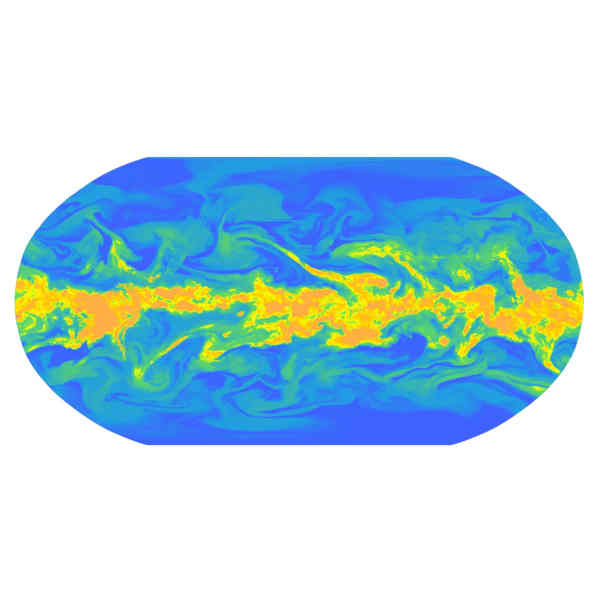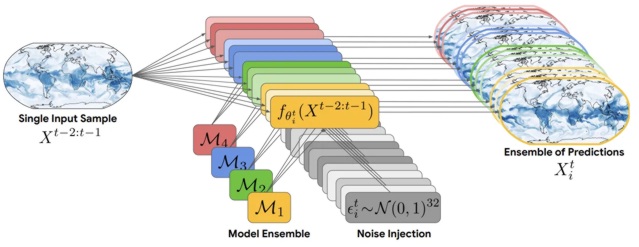| WeatherNext2 From Google DeepMind |
| Written by Sue Gee |
| Sunday, 23 November 2025 |
|
Google is now providing users of Google Search, Gemini and Pixel Weather faster, more accurate and higher resolution weather forecasts thanks to WeatherNext 2, a forecasting model based on a new Functional Generative Network.
WeatherNext 2 is Google DeepMind and Google Research's most advanced AI-powered global weather forecasting model. It represents a significant leap from both traditional physics-based models and their previous AI models. It can predict wind speed and direction, precipitation, pressure, and other weather variables and generate forecasts eight times faster and with resolution up to one hour.
Instead of trying to replicate real-world physics step-by-step like traditional forecasting systems, WeatherNext 2 is trained to recognise patterns from years of weather data. Google claims this approach helps it predict everything from temperature and rainfall to wind and humidity with higher accuracy. It also performs better in identifying large weather systems, like heat waves or rainfall patterns across entire regions. This breakthrough is enabled by a new AI architecture, Functional Generative Network, which allows the model to generate hundreds of plausible weather scenarios from a single starting point. Specifically WeatherNext 2 generates four 6-hour forecasts per day. The model’s input is the “most recent global weather state.” A Functional Generative Network (FGN) is then used to produce slightly different forecasts, with those generated predictions then fed back into the model. This provides the basis for probabilistic forecasting, which helps assess risk by showing the full range of potential outcomes, including low-probability but high-impact events like severe storms. Similar predictions would previously take take hours on a supercomputer using physics-based models, but with this AI approach can now be done in under a minute using a single TPU. Google is making WeatherNext 2 accessible to both everyday users and developers. The upgraded forecasts are already live in Search, Gemini and Pixel Weather app, and will roll out to Google Maps soon. Developers, businesses and researchers can also access the model’s forecast data through Google Earth Engine and BigQuery for large-scale analysis. For organisations that want to build custom models or run specialised predictions, Google is launching an early access program on its Vertex AI platform.
 More InformationWeatherNext 2: Our most advanced weather forecasting model Related ArticlesAI Produces A Breakthrough In Weather Prediction {loadposition signup} {loadposition moreNEWS} {loadposition moreNEWSlist} {loadposition comment}
|
| Last Updated ( Sunday, 23 November 2025 ) |
